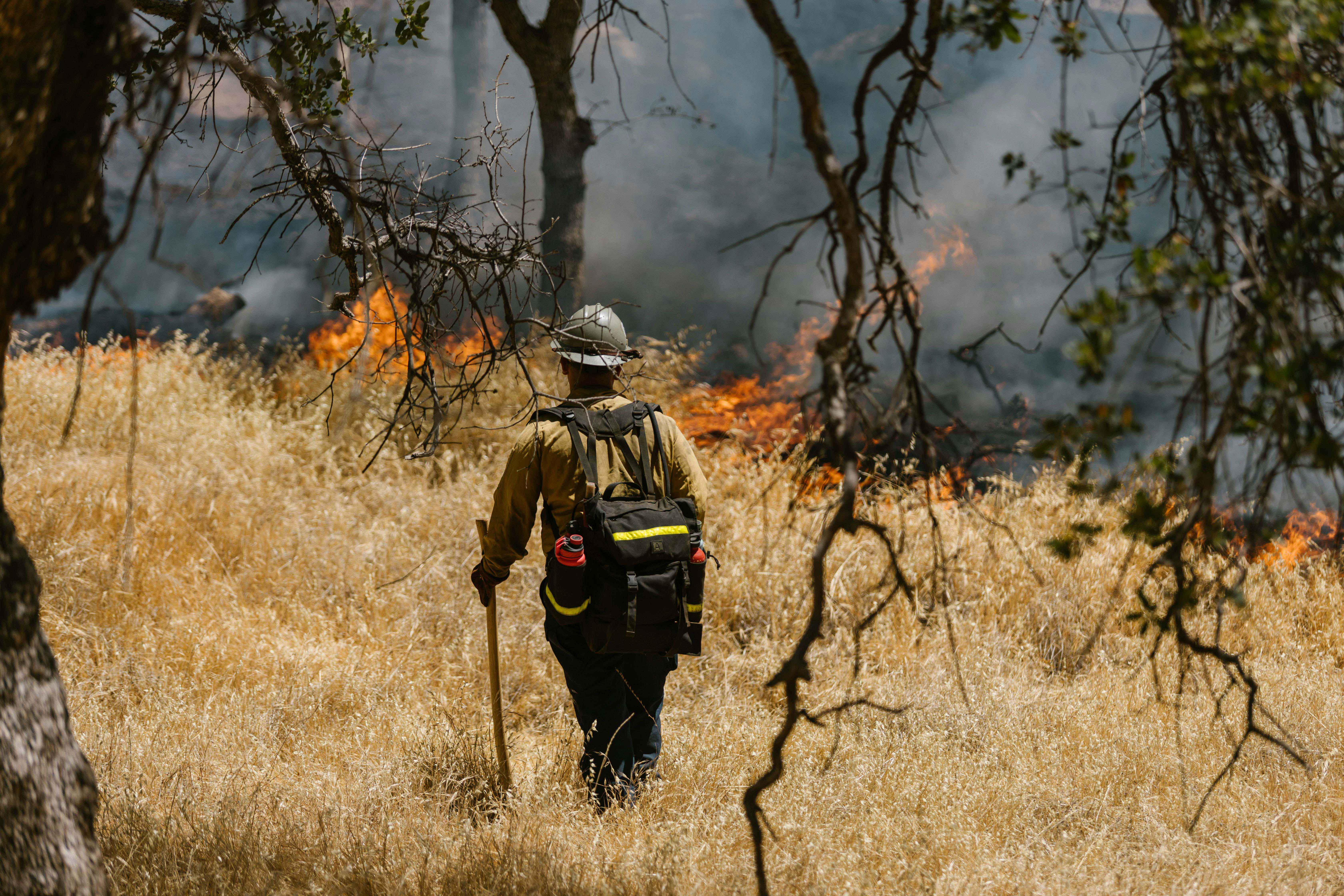Press Release
University of Maryland Wildfire Experts Available to the Media
Members of the press are invited to connect with fire protection engineers at Maryland's A. James Clark School of Engineering.
FOR IMMEDIATE RELEASE September 17, 2024
CONTACT:
Daniela Benites
301 405 9764
dbenites@umd.edu

College Park, MD — The 2024 wildfire season may not be over. According to the U.S. Department of Agriculture, since the 1970s, this phenomenon has extended in the western states from 5 to over 7 months in length, usually occuring in the Summer and Fall.
To better understand this phenomenon, combustion and fire safety engineers work alongside fire ecologists, atmospheric scientists, and even architects and developers to identify risks and to design solutions to prevent, control, and mitigate the effects of wildfires on life and property.
Members of the media looking to spread knowledge about wildfires are invited to connect directly with fire protection experts at the University of Maryland’s A. James Clark School of Engineering for your stories. Faculty expertise is vast; current research projects for each are outlined below. Alternatively, they may contact the media representative for this case.
 |
Shuna Ni Ni’s expertise spans structural fire engineering, fire forensics, the fire safety of mass timber buildings, and the impact of fire on various built environments, including civil infrastructure and wildland-urban interface (WUI) communities. The assistant professor currently focuses on studying the impacts of architectural finishes on fire patterns and investigating the effects of wind on fire dynamics within mass timber compartments. Her research extends to WUI fires, where her team is developing high-fidelity, CFD-based models to simulate structure burning in WUI communities and conducting projects related to WUI fire risk assessment. Ni is also engaged in a project that addresses fire safety in warehouse environments. |
 |
Peter Sunderland Sunderland’s areas of expertise include combustion and fire safety, microgravity combustion, battery and vehicle fires, and diagnostics development. Sunderland leads one and co-investigates two other experiments aboard the International Space Station (ISS): a burning rate emulator, how to design flames to reduce or eliminate the formation of soot, and eerie-blue “cool flames” that could one day improve the design of combustion engines. Because many processes that affect the behavior of systems on Earth (such as thermal convection, sedimentation, and buoyancy) are absent in microgravity, the unique microgravity environment on the ISS has many benefits for the study of combustion and thermal transport phenomena; the elimination of these variables allows phenomena of interest to be studied without gravitational interference. |
 |
Arnaud Trouvé Trouvé’s areas of expertise involve computational approaches to fire safety, including physics-based modeling and simulation of fire dynamics at flame scale, and data-driven forecasting of wildfire dynamics at regional scale. Current projects include a USDA/Forest Service-funded effort to develop a reduced-order computational model to simulate flame spread in the wildland under various vegetation, meteorological, and topographic conditions. Projects also include a National Science Foundation-funded effort to extend the modeling capabilities of current wildfire spread models beyond the case of spread in the wildland to the case of spread from the wildland into an urban area (known as wildland-urban interface fires) and spread across an urban area. The model could be used as a community-level risk assessment tool for pre-event planning, targeted recommendations for fire risk reduction, and real-time fire simulations for incident response, including evacuation and firefighting activities. |
About the A. James Clark School of Engineering
The University of Maryland’s A. James Clark School of Engineering is a premier program, ranked among the top 20 in the world. Located just a few miles from Washington, D.C., the Clark School is at the center of a constellation of high-tech companies and federal laboratories, offering students and faculty access to unique professional opportunities.
Our broad spectrum of academic programs, including the world’s only accredited undergraduate fire protection engineering program, is complemented by a vibrant entrepreneurial ecosystem, early hands-on educational experiences, and participation in national and international competitions.
The Clark School is leading research advancements in aerospace, bioengineering, robotics, nanotechnology, disaster resilience, energy and sustainability, and cybersecurity. From the universal product code to satellite radio, SMS text messaging to the implantable insulin pump, our students, faculty, and alumni are engineering life-changing innovations for millions. Learn more at www.eng.umd.edu.